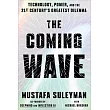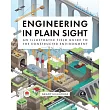The Analysis of Matter is the product of thirty years of thinking by one of the twentieth century’s best-known philosophers. An inquiry into the philosophical foundations of physics, it was written against the background of stunning new developments in physics earlier in the century, above all relativity, as well as the excitement around quantum theory, which was just being developed.
Concerned to place physics on a stable footing at a time of great theoretical change, Russell argues that the concept of matter itself can be replaced by a logical construction whose basic foundations are events. He is careful to point out that this does not prove that matter does not exist, but it does show that physicists can get on with their work without assuming that matter does exist. Russell argues that fundamental bits of ’’matter’’, such as electrons and protons, are simply groups of events connected in a certain way and their properties are all that are required for physics.
This Routledge Classics edition includes the 1992 Introduction by John G. Slater.



 天天爆殺
天天爆殺  今日66折
今日66折 




























 博客來
博客來 博客來
博客來 博客來
博客來 博客來
博客來 博客來
博客來